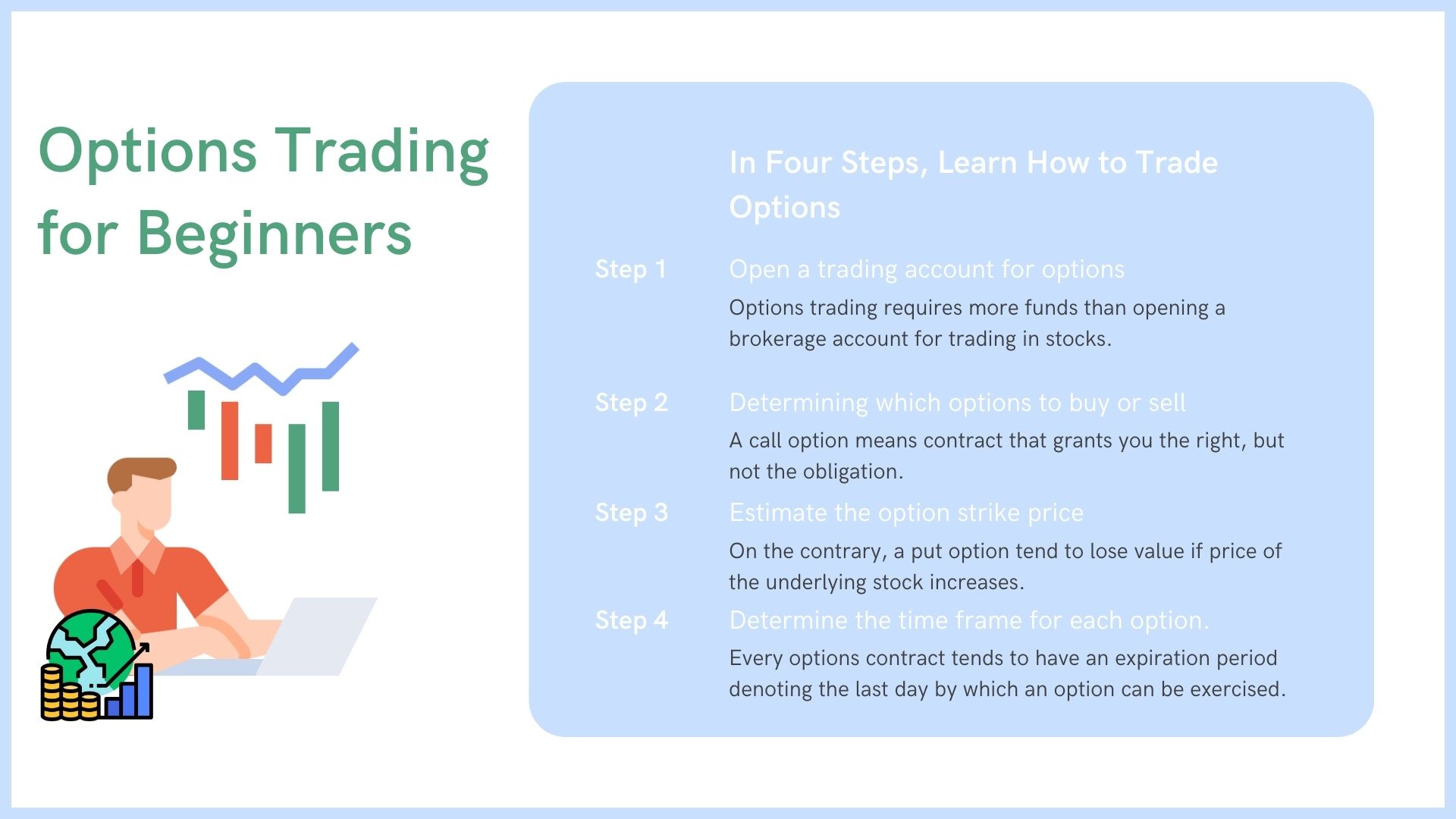Have you ever dreamt of capturing the potential of market movements, not just by buying and selling stocks, but by harnessing the power of options? This is the very essence of options trading, an intriguing world that offers the possibility of significant profits, but also carries substantial risk.

Image: www.myfinopedia.com
For beginners, navigating this realm can feel like trying to decipher a complex financial code. But don’t worry, this guide will equip you with the foundational knowledge to embark on your options trading journey confidently. From the basics of options contracts to practical strategies, we’ll demystify this powerful financial tool and empower you to make informed decisions.
Understanding the Basics of Options
Before we dive into the intricacies, let’s start with the building blocks of options trading:
1. The Heart of Options: A Contract, Not a Stock
Unlike buying shares directly, options trading involves contracts that give you the right – but not the obligation – to buy or sell an underlying asset at a predetermined price (the strike price) before a certain date (the expiration date).
2. Two Sides of the Coin: Calls and Puts
Options come in two flavors: calls and puts.
- Calls grant the right to buy the underlying asset. Think of it as a “buy” option.
- Puts grant the right to sell the underlying asset. Consider this the “sell” option.

Image: www.youtube.com
3. The Price You Pay: Premiums
To acquire an option, you must pay a premium, which is the price you pay for the right to exercise the contract. This premium is a key factor to consider, as it influences your potential profit or loss.
Why Options? Exploring the Advantages
So why choose options trading? Let’s take a look at the benefits that have captivated investors for decades:
1. Unleashing Leverage: Magnifying Your Potential
Options offer leverage, a double-edged sword that can amplify both profits and losses. A small investment in an option can potentially yield a larger return compared to directly purchasing the underlying asset.
2. The Power of Flexibility: Tailoring Your Strategies
Options provide immense flexibility, allowing you to customize your trading strategies to align with your risk tolerance and market outlook. You can profit from rising or falling markets, hedge your existing investments, or explore more complex trading techniques.
3. Opening Doors to Opportunity: Exploring Various Strategies
The world of options extends beyond calls and puts. There’s a vast array of strategies you can utilize, ranging from simple buy and sell options to complex multi-leg strategies. This flexibility allows you to tailor your approach to your individual needs.
The Flip Side of the Coin: Understanding the Risks
While options offer exciting possibilities, it’s crucial to recognize the inherent risks before you jump in. Remember, options can be complex, and a lack of knowledge could lead to significant losses.
1. Time Decay: The Clock is Ticking
Options have a limited lifespan, meaning their value erodes as they approach their expiration date. This phenomenon is known as time decay, and it can work against you if the market doesn’t move in your favor.
2. Limited Profit, Unlimited Loss: A Balancing Act
Unlike stocks, where your potential loss is capped at your initial investment, options can expose you to unlimited losses. While your maximum profit is often limited by the premium paid, your potential downside is potentially unbounded.
3. The Complexity Factor: Mastering the Nuances
Options trading is not for the faint of heart. It requires a thorough understanding of technical and fundamental analysis, as well as a robust risk management strategy. Neglecting to grasp these complexities can lead to costly mistakes.
Navigating the Path: Essential Tips for Beginners
Now that you’ve gained a foundational understanding, let’s equip you with practical tips to set yourself on the right track as a beginner:
1. Start Small: Building Confidence Gradually
Don’t jump headfirst into complex strategies. Start with simple options like single call or put positions to get a feel for the market. Gradually explore more advanced strategies as you gain experience and confidence.
2. Education is Power: Embrace Continuous Learning
Options trading requires continuous learning. Utilize online resources, books, courses, and educational platforms to deepen your understanding of the market, strategies, and risk management.
3. Risk Management 101: Safeguarding Your Capital
Developing a sound risk management strategy is paramount. Determine your risk tolerance, set clear stop-loss orders, and never invest more than you can afford to lose.
4. Seek Professional Guidance: Enlisting Expert Advice
Don’t hesitate to consult with a financial advisor or a certified options trading expert. They can provide personalized guidance, help you formulate strategies, and navigate the complexities of the market.
Beginner Options Trading
Conclusion: Charting Your Course in Options Trading
Options trading can be a rewarding yet challenging endeavor. This guide has taken you through the key elements, from understanding the basics to navigating risks and embracing continuous learning. Remember, patience, discipline, and sound risk management are your anchors in the unpredictable waters of options trading. So, go forth with newfound knowledge, explore further resources, and embark on your journey to unlock the potential within this fascinating world.






